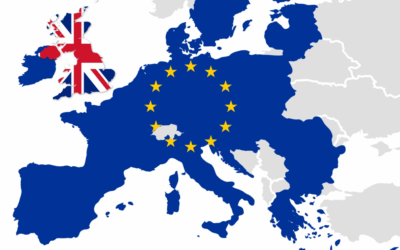
In last week’s article, we delved into the cultural and economic connections shared between South Africa and the Netherlands. Building upon that theme, this week’s article focusses on the potential advantages that the Netherlands can offer to South African business ventures:
- Strategically located:
One of the main benefits of doing business in the Netherlands, is the instant access to the entire international market due to the strategically beneficial location of the country. Due to being situated directly next to the UK, Germany, Denmark and Belgium, as well as having a large coastal strip with multiple ports, the Netherlands has immediate access to many European countries. In general, it has been proved that the country has direct access to 95% of the most lucrative consumer markets within the entirety of Europe within 24 hours.
- Thriving Tech and Innovation Ecosystem:
The Netherlands boasts a vibrant tech and innovation ecosystem, with numerous tech hubs, research centres, and incubators. This environment nurtures creativity and collaboration, making it attractive for South African startups and tech companies looking to expand their innovation-driven enterprises.
According to Rob Ridout of Job Search International, “one of the major success stories, that shows that the Netherlands is the global hub for tech, is that Dutch company ASML recently sold their advanced chipmaking tool to Intel for more than $340 million with even more orders being placed by other companies. This, in turn, will create many more job opportunities for highly skilled migrants in the financial, engineering and IT arenas”, said Ridout.
- Favourable Tax Climate:
The Netherlands provides numerous tax benefits and incentives to businesses and companies operating in the country. In addition to lower corporate income tax rates, the following benefits and incentives are available for registered business in Netherlands:
- Tax benefits for innovation: A tax incentive called “Innovation Box” enables companies to pay corporate tax at a lower rate on income from specific innovative activities. The Investment Deduction Scheme also offers tax benefits for investments in specific innovative assets. Also, the WBSO (Research and Development Wage Tax Credit) allows businesses to claim a tax credit for employee pay related to innovative activity.
- Tax deduction for research and development activities: In particular, some research and development activities on applied new technology are subsidised by a reduction in wage tax. It applies to all wage tax that is payable on wages of employees engaged in technologically new products.
- 30% tax-free allowance for highly skilled foreign employers: People who meet specific requirements, such as having a salary above a certain level and having a particular educational background, are eligible for the allowance. This stipend serves as a payment for the costs associated with working abroad.
- Tax benefits for patented products: These include the Patent Box and the Research and Development Deduction. Companies can deduct up to 125% of their research and development expenses from their taxable income thanks to the research and development deduction. By using the Patent Box, businesses can lower their corporate tax rate on revenue from patented goods to 10%.
Due to the existence of a tax treaty between the Netherlands and South Africa, South African entrepreneurs can avoid double taxation and enjoy enhanced protection while engaging in international business.
- Cultural and Language Connections:
The Netherlands’ cultural life is diverse, reflecting regional diversity as well as foreign influences accumulated over centuries by the Dutch people’s mercantile and exploratory spirit. The Netherlands has always been associated with tolerance and liberalism, which are prevalent and it’s a benefit of expanding business in the Netherlands.
South Africans often find it easier to adapt to the Dutch business culture due to shared historical ties and a significant English-speaking population in the Netherlands. This linguistic familiarity can streamline communication and negotiations, facilitating smoother business interactions.
In conclusion, the Netherlands offers South Africans a host of potential benefits for business expansion and international trade. From access to vast European markets and a thriving innovation ecosystem to a favourable tax climate and cultural and language connections, the Netherlands presents a compelling opportunity for South African entrepreneurs and companies seeking to expand their horizons.
Sources:
https://intercompanysolutions.com/benefits-establishing-business-netherlands/
https://www.wipo.int/global_innovation_index/en/2022/
https://startupsmagazine.co.uk/index.php/article-5-tax-benefits-companies-netherlands
https://www.flexas.com/blog/benefits-expanding-business-amsterdam



